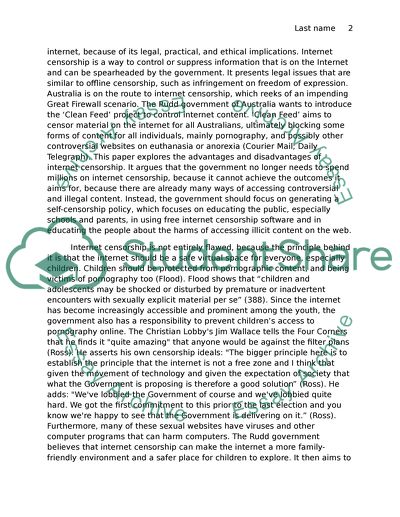Cite this document
(“Censorship on the Internet Essay Example | Topics and Well Written Essays - 2500 words”, n.d.)
Retrieved de https://studentshare.org/information-technology/1390188-censorship-on-the-internet
Retrieved de https://studentshare.org/information-technology/1390188-censorship-on-the-internet
(Censorship on the Internet Essay Example | Topics and Well Written Essays - 2500 Words)
https://studentshare.org/information-technology/1390188-censorship-on-the-internet.
https://studentshare.org/information-technology/1390188-censorship-on-the-internet.
“Censorship on the Internet Essay Example | Topics and Well Written Essays - 2500 Words”, n.d. https://studentshare.org/information-technology/1390188-censorship-on-the-internet.


